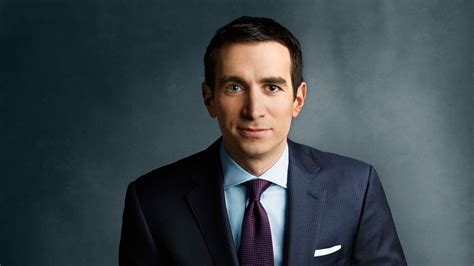The world of high-stakes finance and deal-making has long been a realm of intrigue, with key players often wielding significant influence over the global economy. One such figure is Andrew Ross Sorkin, a journalist, author, and television personality known for his incisive insights into the workings of Wall Street and the corporate world. Through his work, Sorkin has established himself as a leading voice in financial journalism, offering readers and viewers a unique perspective on the complex and often opaque world of finance.
Sorkin’s rise to prominence began with his work as a journalist, particularly at The New York Times, where he covered significant financial events and wrote about the inner workings of Wall Street. His ability to break major stories and provide detailed analysis of financial dealings quickly made him a respected figure in the industry. One of his most notable achievements was co-founding DealBook, a daily financial report published by The New York Times that focuses on mergers and acquisitions, as well as other corporate news. DealBook has become an essential resource for those seeking to understand the intricacies of corporate finance and the strategic decisions behind major business deals.
Beyond his work in print journalism, Sorkin has also made a significant impact through his television appearances. He is a regular contributor to CNBC, where he provides commentary on current financial news and interviews key figures from the business world. His in-depth interviews often offer unique insights into the thinking and strategies of corporate leaders and financial personalities, providing viewers with a more nuanced understanding of the factors driving the global economy.
One of Sorkin’s most notable contributions to the broader public’s understanding of finance and economics is his book, “Too Big to Fail: The Inside Story of How Wall Street and Washington Fought to Save the Financial System—and Themselves.” Published in 2009, the book provides a detailed, behind-the-scenes account of the 2008 financial crisis, exploring how government officials and financial leaders navigated the crisis to prevent a complete collapse of the financial system. The book was widely praised for its meticulous reporting and engaging narrative style, making complex financial issues accessible to a broad audience. It also served as the basis for an HBO film adaptation, further widening its impact and introducing Sorkin’s work to an even broader audience.
Sorkin’s work demonstrates a commitment to transparency and accountability in the financial sector. Through his reporting and commentary, he has consistently pushed for greater clarity and openness in financial dealings, advocating for policies and practices that prioritize stability and fairness. His dedication to these principles has earned him recognition and respect from both his peers and the public, solidifying his position as a leading figure in financial journalism.
The influence of Andrew Ross Sorkin extends beyond the realm of finance, speaking to broader issues of power, responsibility, and the role of journalism in holding those in power accountable. His work serves as a reminder of the importance of thorough, investigative reporting in understanding the complex systems that underpin our global economy. As the financial landscape continues to evolve, with new challenges and opportunities emerging, Sorkin’s contributions will remain invaluable, offering a guiding light through the intricacies of the financial world.
What Makes a Successful Financial Journalist?
To be a successful financial journalist like Andrew Ross Sorkin, one must possess a combination of skills and traits. First and foremost, a deep understanding of financial concepts and mechanisms is essential. This includes knowledge of financial markets, instruments, regulations, and the broader economic context. However, merely having this knowledge is not enough; the ability to explain complex financial issues in a clear, concise manner is crucial for communicating with a wide audience.
Second, excellent investigative and reporting skills are necessary. This involves the ability to uncover new stories, conduct thorough research, and interview key figures in the financial world. Building a network of contacts and sources within the financial industry can provide journalists with access to exclusive information and insights, enabling them to break significant stories and offer unique perspectives.
Lastly, integrity and a commitment to fairness and accuracy are paramount. Financial journalism has the power to influence markets and public opinion, making it essential for journalists to maintain the highest standards of professionalism and ethics. This includes avoiding conflicts of interest, ensuring the accuracy of information, and presenting balanced views that reflect the complexity of financial issues.
The Role of Journalism in Financial Transparency
Journalism plays a pivotal role in promoting transparency and accountability within the financial sector. By shedding light on financial dealings and practices, journalists can help prevent fraudulent activities, promote ethical business practices, and ensure that corporations and financial institutions operate with integrity. The work of journalists like Andrew Ross Sorkin underscores the importance of a free and inquisitive press in maintaining the health and stability of the financial system.
Moreover, financial journalism contributes to educating the public about financial matters, empowering individuals to make informed decisions about their investments and financial well-being. By explaining complex financial concepts and news in an accessible way, journalists help bridge the knowledge gap between financial professionals and the general public, promoting a more financially literate society.
Future of Financial Journalism
The future of financial journalism is likely to be shaped by technological advancements, changing reader habits, and the evolving nature of the financial sector itself. With the rise of digital media, financial news is now more accessible than ever, with updates available in real-time. This shift has created both opportunities and challenges for financial journalists, who must adapt to a faster-paced, more competitive environment while maintaining the quality and integrity of their reporting.
Moreover, the increasing complexity of financial products and global interconnectedness means that financial journalists must be more adept than ever at analyzing complex data, understanding international financial dynamics, and communicating these insights effectively to their audience. The integration of data journalism and investigative reporting techniques will likely become more prevalent, allowing for deeper insights into financial trends and practices.
In conclusion, Andrew Ross Sorkin’s work exemplifies the impact that dedicated and insightful financial journalism can have on our understanding of the financial world. Through his reporting, commentary, and literary works, Sorkin has provided invaluable insights into the functioning of Wall Street and the broader financial system. His contributions highlight the critical role of journalism in promoting transparency, accountability, and public understanding of financial issues, making him a model for aspiring financial journalists and a respected voice in the global financial community.
What role does Andrew Ross Sorkin play in financial journalism?
+Andrew Ross Sorkin is a leading figure in financial journalism, known for his in-depth coverage of Wall Street and corporate news. He co-founded DealBook, a daily financial report by The New York Times, and has written extensively on financial topics, including his book “Too Big to Fail,” which offers a detailed account of the 2008 financial crisis.
How does Sorkin’s work contribute to financial transparency and accountability?
+Sorkin’s reporting and commentary help shed light on financial dealings and practices, contributing to transparency and accountability within the financial sector. His work educates the public about financial matters, empowering individuals to make informed decisions and promoting ethical business practices.



